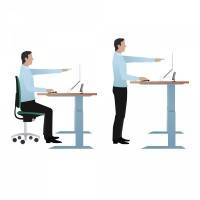May 16, 2016
Women (and men) don’t enjoy the full wellbeing benefits of flexible working 0
 There has been significant expansion of flexible working arrangements (FWAs) in the last two decades, driven to some degree by the work-life balance agenda. However, in practice work-life balance and flexible working continue to be viewed as a ‘women’s issue’, as women more often reduce hours or work part-time. But recent research conducted by my own department suggests that women working flexibly are not experiencing the potential wellbeing benefits when compared to men. Flexible working arrangements include part-time, flexi-time, job share and homeworking. Part-time accounts for approximately 40 percent of female employment and is the most common FWA used by women. Term-time working is also used predominantly by women, reflecting the typical gender roles regarding caring for school-aged children. Meanwhile, flexi-time remains the most common arrangement used by men, at around 19 percent.
There has been significant expansion of flexible working arrangements (FWAs) in the last two decades, driven to some degree by the work-life balance agenda. However, in practice work-life balance and flexible working continue to be viewed as a ‘women’s issue’, as women more often reduce hours or work part-time. But recent research conducted by my own department suggests that women working flexibly are not experiencing the potential wellbeing benefits when compared to men. Flexible working arrangements include part-time, flexi-time, job share and homeworking. Part-time accounts for approximately 40 percent of female employment and is the most common FWA used by women. Term-time working is also used predominantly by women, reflecting the typical gender roles regarding caring for school-aged children. Meanwhile, flexi-time remains the most common arrangement used by men, at around 19 percent.

















 A new study published yesterday in the British Journal of Sports Medicine claims that office workers spend far too much time sitting, are suffering from a range of conditions and illnesses as a result and so should be encouraged to spend up to half of each working while standing. The report,
A new study published yesterday in the British Journal of Sports Medicine claims that office workers spend far too much time sitting, are suffering from a range of conditions and illnesses as a result and so should be encouraged to spend up to half of each working while standing. The report, 













May 18, 2016
Younger working mothers bear the brunt of maternity discrimination 0
by Sara Bean • Comment, Flexible working, Legal news, News, Workplace
(more…)